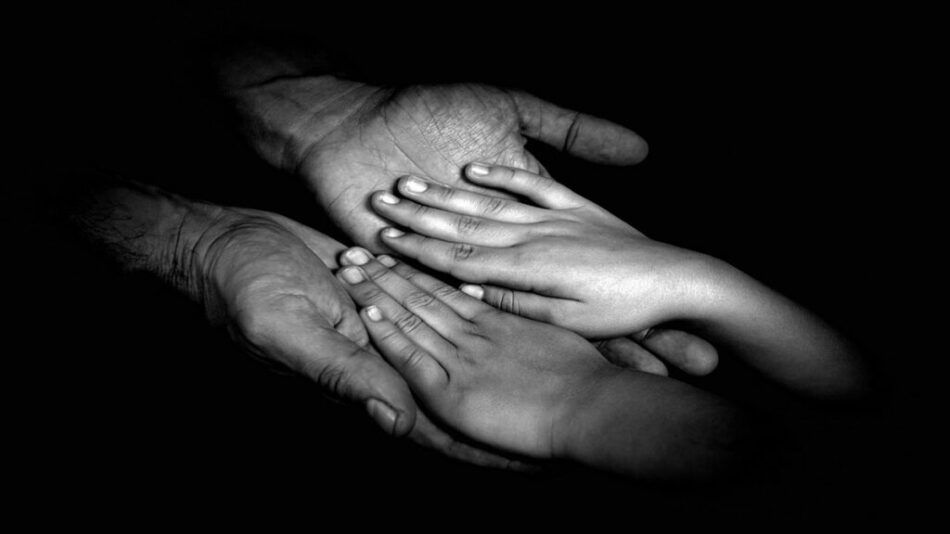Mourning the loss of a loved one is an enduring aspect of the human experience. The death of a father, in particular, can leave a profound absence in one’s life. However, the resonance of the deceased often lingers in dreams, leading many to seek understanding of these nocturnal encounters. In the Islamic tradition, dreaming of a deceased father can carry significant meaning, serving as a conduit between the realms of the living and the departed. This article delves into the interpretive significance of such dreams, which are rich in symbolism and spiritual connotations.
In Islam, dreams are considered significant, often viewed as a form of divine communication or insight into the spiritual realm. The Prophet Muhammad (peace be upon him) acknowledged that dreams can be a reflection of reality, serving as a means of guidance for the faithful. This perspective invites believers to pay close attention to their dreams, particularly when they feature loved ones who have passed away. Such dreams can be seen as messages or signs, warranting careful consideration and reflection.
When dreaming of a deceased father, Muslims often analyze the dream through various lenses. Firstly, the emotional connections involved must be considered. The father figure often embodies wisdom, protection, and authority. His appearance in a dream may signify unresolved emotions or lingering feelings of love and loss. Such dreams frequently evoke deep emotional responses, prompting individuals to reflect on their relationship with their father and the impact of his absence.
From an Islamic standpoint, if the dream reveals the father in a positive light—appearing content, guiding, or imparting wisdom—it may suggest that he is at peace in the afterlife. These dreams can serve as a source of solace, allowing the dreamer to feel connected to their father. In contrast, if the dream portrays the father in distress or expressing a need for assistance, it may signal that he requires prayers (dua) or charity (sadaqah) from his surviving family. This belief is rooted in the understanding that the actions of the living can influence the well-being of the deceased in the hereafter.
It is essential to contextualize the dream within the individual’s current life circumstances. For instance, those grappling with significant life decisions or personal challenges might dream of their father as a source of guidance. Such dreams may provide comfort, reaffirming the notion that the father’s protective presence continues to linger, albeit in a different form. Engaging in introspection during these moments can assist in elucidating the messages embedded within the dream.
In Islam, the significance of dreams featuring deceased loved ones is not confined to personal relationships. It reflects broader themes of life, death, and the continuum of existence. Such dreams invite the dreamer to ponder their mortality, the transient nature of life, and the everlasting impact of their actions and faith. Islamic teachings emphasize the importance of maintaining a strong relationship with Allah, which can profoundly influence one’s spiritual journey and perception of loss.
Communication is another pivotal aspect to consider when interpreting these dreams. A deceased father might convey messages about the importance of family, values, or spiritual teachings. This could manifest as advice on how to navigate challenges in life or encouragement to seek forgiveness and strengthen connections with family members that may have been strained. The insights gleaned from these dreams can inspire intention and action in the dreamer’s waking life.
In addition, historians and Islamic scholars have documented various interpretive frameworks for understanding dreams. Ibn Sirin, a renowned scholar of dream interpretation, proposed that dreams hold meanings based on symbols and the context in which they occur. Thus, one might explore recurring themes, colors, or scenarios present in the dream involving the father. This analytical approach can yield deeper understanding and insight into personal experiences and the dynamics of one’s life.
Furthermore, the societal and cultural context in which the dream occurs plays a role in shaping its interpretation. Cultural beliefs regarding death and the afterlife can influence how individuals perceive dreams of their deceased fathers. In many cultures, such dreams are treated with reverence and viewed as opportunities for closure, healing, and understanding. This broader perspective may enhance the emotional and spiritual significance attributed to the experience.
Ultimately, dreaming of a deceased father is an intimate experience imbued with emotional weight and spiritual significance. It serves as a reminder of the enduring bonds that connect loved ones, even after death. The act of remembering, reflecting, and seeking meaning from these dreams can facilitate a deeper understanding of life, loss, and the essence of faith. Islamic teachings encourage believers to remain steadfast in their prayers and good deeds, reiterating the belief that love transcends physical boundaries. Furthermore, it is through these dreams that individuals may find a sense of peace and closure, reaffirming their connection with their father while navigating the complexities of life. As Muslims explore these deep waters of emotion and spiritual insight, they might find a renewed sense of purpose, guided by the enduring love and wisdom of their fathers.








